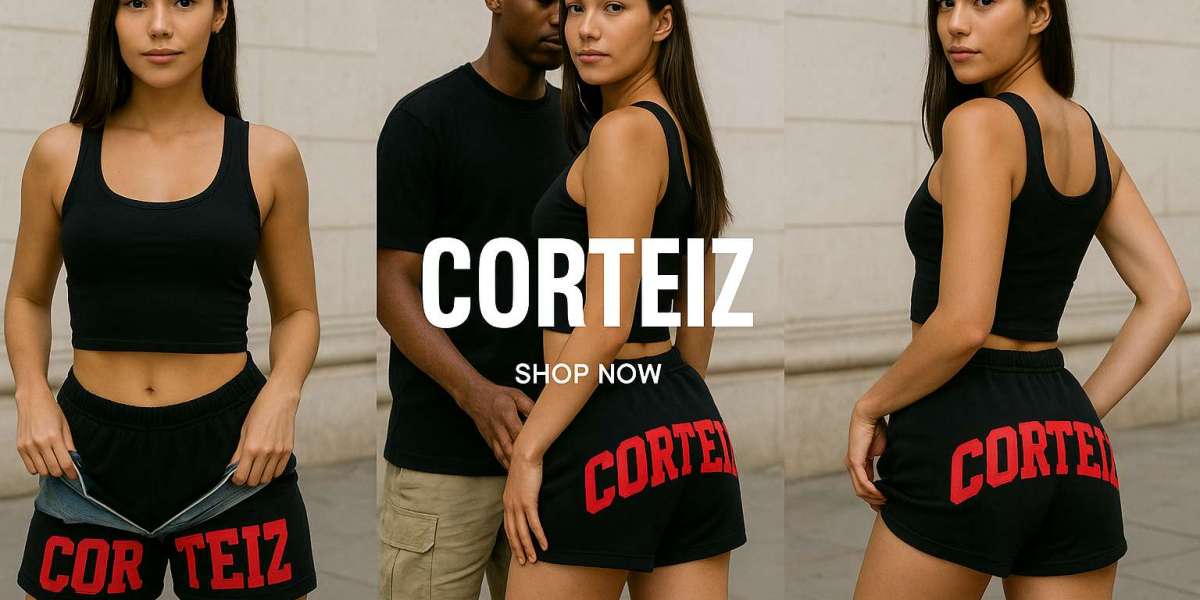In an industry full of noise, few brands have managed to cut through with clarity, power, and purpose like Corteiz Clothing. Born on the streets of London and now recognized worldwide, Corteiz isn’t just another streetwear label—it’s a voice. A movement. A code that connects those who speak the same fashion language of authenticity, defiance, and self-made identity.
At the center of Corteiz’s ever-growing influence stands its most iconic and sought-after piece: the Corteiz Tracksuit. It’s not just about clean design or limited drops—it’s about what it represents. The tracksuit is more than an outfit. It’s a uniform of culture, resistance, and power.
The Brand: Built Different
Corteiz, also stylized as CRTZ, didn’t follow fashion industry playbooks. It didn’t beg for validation. Instead, it created its own lane—and forced everyone else to follow. Spearheaded by Clint419, the brand initially grew underground, spreading via word-of-mouth, password-protected releases, and viral marketing stunts that challenged the idea of accessibility in streetwear.
From pop-up "raids" in global cities to encrypted online drops, Corteiz built a loyal army. Not because it sold products—but because it sold purpose.
The Tracksuit: Symbol of Movement
The Corteiz Tracksuit sits at the heart of this movement. On paper, it’s a two-piece tracksuit made from premium fleece or cotton blends. But on the streets, it’s a statement of loyalty, knowledge, and cultural fluency.
To wear a Corteiz Tracksuit is to communicate without words. It tells others that you’re tapped in, that you understand the ethos of the brand: self-respect, rebellion, and realness.
Design Philosophy: Simple, Strong, Strategic
Every Corteiz Tracksuit is designed with intent. The cuts are tailored but not tight—enough to suggest athleticism without sacrificing comfort. The silhouette pays homage to classic UK tracksuits worn in the 90s and early 2000s but updates them with modern proportions and premium fabrication.
Details That Matter
Alcatraz logo: Embroidered or printed prominently on the chest or thigh, symbolizing rebellion and the idea of being “locked in” to the brand’s vision.
Typography: Slogans like "Rules The World" or "Guerillaz" appear subtly or boldly, acting as wearable protest banners.
Functional finishes: Deep pockets, zip cuffs, adjustable hoods, and elasticated waistbands ensure practicality meets design.
These tracksuits are made to be worn—on the pitch, on the streets, on stage, or on the move.
More Than Fashion: Identity Through Style
For many young people, fashion is more than appearance—it’s how they express identity in a world that often tries to define them. The Corteiz Tracksuit isn’t about fitting in with trends. It’s about standing out by standing for something.
This is why the tracksuit resonates so deeply in inner-city communities across London, Manchester, Birmingham—and increasingly in cities across Europe, Africa, and the US. It’s become a visual badge of belonging, particularly among working-class youth who don’t see themselves reflected in mainstream fashion media.
Controlled Chaos: The Drop Culture
Part of the Corteiz appeal lies in how the brand releases its items. There are no seasonal collections listed in advance. No stores that stock the full line. Instead, Corteiz operates on a guerrilla-style drop system. One week it’s a GPS-located pop-up in Paris; the next, it’s a surprise online drop announced hours before going live.
This method gives the brand mystique, but also places power back into the hands of the community. Only those truly locked in—following updates, sharing information, staying connected—are rewarded with access.
And when it comes to the tracksuit, drops are especially limited. They sell out in minutes. Often, by the time you refresh your browser, it’s already gone.
Cultural Co-Sign: From Footballers to Rappers
The Corteiz Tracksuit has become a mainstay among UK cultural leaders. It’s been worn by footballers like Marcus Rashford and Jadon Sancho, as well as rappers such as Central Cee, Stormzy, and AJ Tracey. These aren’t paid placements—they’re organic endorsements from artists and athletes who grew up in the same environments Corteiz represents.
Corteiz doesn’t chase the hype. The hype chases Corteiz.
And when these cultural figures wear the tracksuit, it validates its meaning. It shows the world that you don’t need luxury labels or corporate brands to have status—real culture creates its own status.
The Global Movement: From Local to Worldwide
Though rooted in the UK, Corteiz is no longer just a London brand. Its influence is stretching into Europe, America, and Africa—especially Nigeria and Ghana, where youth culture is closely linked to fashion, music, and resistance.
With global shipping, international pop-ups, and cross-border collaborations, the Corteiz Tracksuit is becoming a global uniform for the self-aware and unapologetic.
Resale Market: The Cost of Exclusivity
Due to its limited availability, Corteiz tracksuits often appear on resale platforms at steep markups. A tracksuit that retailed for £180 might fetch £400–£600 on secondary markets, depending on rarity and condition.
But the most valuable thing about a Corteiz Tracksuit isn’t its resale value—it’s its cultural value. For many, the tracksuit isn’t bought to flip—it’s bought to flex, to wear, and to represent.
The Message Behind the Material
Corteiz's rise isn't an accident. It’s a response. A response to fashion’s tendency to exclude, sanitize, and commercialize culture. The Corteiz Tracksuit puts control back in the hands of those who create trends but are rarely credited for them.
It says: We don’t need your approval. We made this ourselves.
Final Thoughts: More Than a Brand
The Corteiz Tracksuit is more than fabric. It’s a movement stitched together by culture, hustle, and resistance. It’s proof that fashion doesn’t need permission to be powerful.
As streetwear continues to evolve, Corteiz remains a reminder of what the genre was always meant to be: expressive, community-driven, raw, and real.
If you know, you know. And if you don’t—don’t worry. You’ll see the tracksuit on the streets soon enough.







